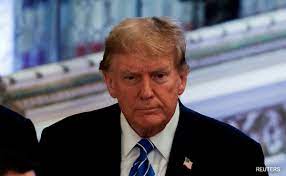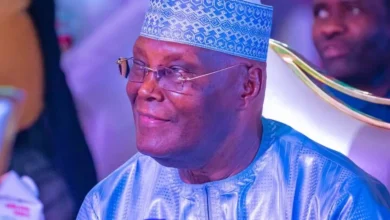Tariffs on Imported Semiconductor Chips Coming Soon – Trump

U.S. President Donald Trump announced that he will reveal the tariff rate on imported semiconductors within the coming week, signaling that exclusions for products like smartphones and computers may soon come to an end. The move is part of a broader effort to revamp trade in the high-tech sector and encourage domestic manufacturing of chips and other key components.
Speaking to reporters aboard Air Force One as he returned to Washington from his West Palm Beach estate, Trump explained the decision to initially exempt certain companies, saying, “We wanted to uncomplicate it from a lot of other companies, because we want to make our chips and semiconductors and other things in our country.”
While he did not confirm whether smartphones and similar devices would remain exempt, Trump hinted at potential exceptions. “You have to show a certain flexibility. Nobody should be so rigid,” he said.
Earlier in the day, the president also announced the launch of a national security trade investigation into the semiconductor industry, further underlining the administration’s focus on reshaping the tech supply chain.
On Friday, the White House had initially excluded consumer electronics from the latest round of reciprocal tariffs on China, offering a brief reprieve to the tech industry and raising hopes that essential consumer goods like phones and laptops might be spared from rising costs.
However, Commerce Secretary Howard Lutnick made it clear on Sunday that the relief would be short-lived. He stated that new tariffs on critical Chinese technology products—including semiconductors—would be introduced within the next two months. He added that smartphones, computers, and other electronic devices would be subject to a separate category of duties.
Lutnick noted that these forthcoming tariffs would not fall under the existing reciprocal tariff framework, under which levies on Chinese imports recently surged to 125%. Instead, the new measures would carry what he described as “a special focus-type of tariff” on strategic tech and pharmaceutical products.
The uncertainty surrounding Trump’s trade policy has roiled financial markets, contributing to some of the most volatile trading since the COVID-19 pandemic in 2020. The S&P 500 index has dropped more than 10% since Trump took office on January 20.





